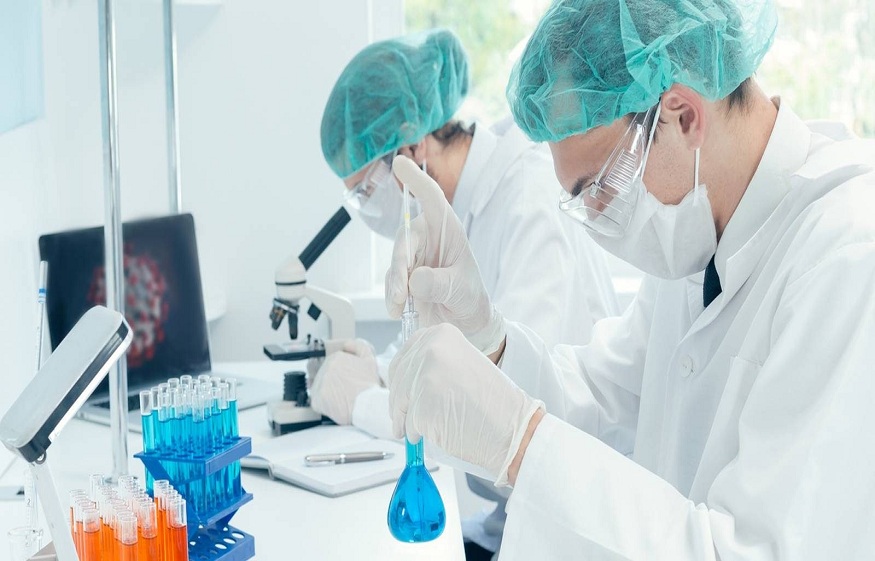The outbreak of the COVID-19 pandemic has led to an immense impact on various aspects of our lives, including medical testing. Medical tests are essential in diagnosing and treating illnesses, but due to the pandemic, many people have had difficulties accessing them. Moreover, there is growing concern about how the accuracy of these tests may be affected by COVID-19. In this blog post, we will explore how the pandemic has impacted medical testing and what steps can be taken to mitigate its impact in the long term. Join us as we dive deeper into this critical issue affecting healthcare systems globally!
Rapid Laboratory, the Best medical testing laboratory in Patiala is aware about the importance of rapid and accurate testing in managing infectious diseases.
The Different Types of Medical Tests that have been Impacted by COVID-19
Since the emergence of COVID-19, various types of medical tests have been impacted in different ways. One type of test that has been greatly affected is routine check-ups and preventative screenings. Due to the pandemic, many people have postponed or canceled their appointments for fear of exposure, leading to a decrease in overall testing rates.
Additionally, diagnostic testing for other illnesses and diseases has also been disrupted as healthcare facilities shifted their focus towards COVID-19 patients. This has resulted in delayed diagnoses and treatment for individuals with serious health conditions such as cancer.
Furthermore, laboratory testing procedures have also experienced disruptions due to supply chain issues caused by the pandemic. The shortage of reagents and equipment necessary for conducting certain tests has led to delays in processing results.
Drug-testing programs have been heavily impacted as well. Many employers were forced to suspend these programs during lockdowns due to difficulties with social distancing measures and reduced staffing levels at laboratories.
The COVID-19 pandemic has had a significant impact on all aspects of medical testing from routine check-ups to diagnostic procedures and laboratory processes alike.
How COVID-19 has Impacted the Accuracy of Medical Tests
COVID-19 has had a significant impact on the accuracy of medical testing. One reason for this is that many healthcare facilities have been overwhelmed with patients, leading to delays in testing and reporting results. This can lead to false negatives, where someone who actually has an illness tests negative due to delayed or inaccurate test results.
Another issue is that some diagnostic tests may cross-react with other coronaviruses, leading to false positives. Additionally, as COVID-19 continues to spread rapidly across the globe, there are concerns about the reliability of antibody tests since they measure past infections rather than current ones.
The pandemic has also led to changes in laboratory protocols and processes. Many labs are experiencing shortages of supplies necessary for accurate testing such as reagents and swabs which can also affect test accuracy.
Furthermore, fear and anxiety surrounding the virus could cause individuals seeking medical attention for unrelated issues from avoiding hospitals or clinics altogether out of fear causing further inaccuracies in diagnosis rates.
The Potential Long-term Impacts of COVID-19 on Medical Testing
The COVID-19 pandemic has caused significant disruptions to medical testing around the world. While efforts have been made to adapt and continue essential testing, there are potential long-term impacts that could be felt for years to come.
One of the main concerns is a backlog in non-COVID related medical tests. With resources being redirected towards COVID-19 testing, routine screenings such as mammograms and colonoscopies have been postponed or canceled. This delay could lead to delayed diagnoses of serious illnesses, ultimately impacting patient outcomes.
Additionally, the pandemic has highlighted disparities in access to medical testing among different populations. Those who lack access to healthcare facilities or live in remote areas may face even greater challenges when it comes to accessing necessary tests.
Furthermore, supply chain disruptions due to global lockdowns have also impacted availability of certain reagents and materials needed for various types of medical testing. This could result in longer turnaround times for results and decreased accuracy of some diagnostic tests.
As we navigate through this ongoing crisis, it’s important that we recognize the potential long-term consequences on our healthcare system beyond just treating those with COVID-19. It will take continued innovation and adaptation by healthcare professionals and policymakers alike to mitigate these impacts moving forward.
As the world continues to navigate the ongoing pandemic, the role and impact of medical testing laboratories will continue to evolve.
What Steps can be Taken to Mitigate the Impact of COVID-19 on Medical Testing?
The impact of COVID-19 on medical testing has been significant, but there are steps that can be taken to mitigate its effects. One such step is the implementation of telemedicine and virtual consultations. This allows patients to receive medical advice without having to physically visit a doctor’s office, reducing the risk of exposure.
Another important step is increasing the availability and accessibility of at-home testing kits. These kits allow individuals to perform certain tests in the comfort of their own homes, eliminating the need for them to go into a healthcare facility.
It is also crucial for healthcare providers to maintain proper safety protocols when conducting in-person tests. This includes frequent sanitization of equipment and facilities, as well as wearing appropriate personal protective equipment (PPE).
Furthermore, investing in research and development of new diagnostic tests that are more accurate and efficient can help address some of the challenges posed by COVID-19 on medical testing.
Conclusion
In summary, COVID-19 has had a significant impact on medical testing across the world. The accuracy of tests for other diseases has been affected due to resource reallocation and supply chain disruptions caused by the pandemic. There is also a potential long-term effect that could lead to delayed diagnosis and treatment of other illnesses.We must continue to adapt and find innovative solutions that will enable us to address current health challenges while preparing for future ones. By doing so, we can ensure that our healthcare systems remain resilient even in times of crisis like the ongoing COVID-19 pandemic.





